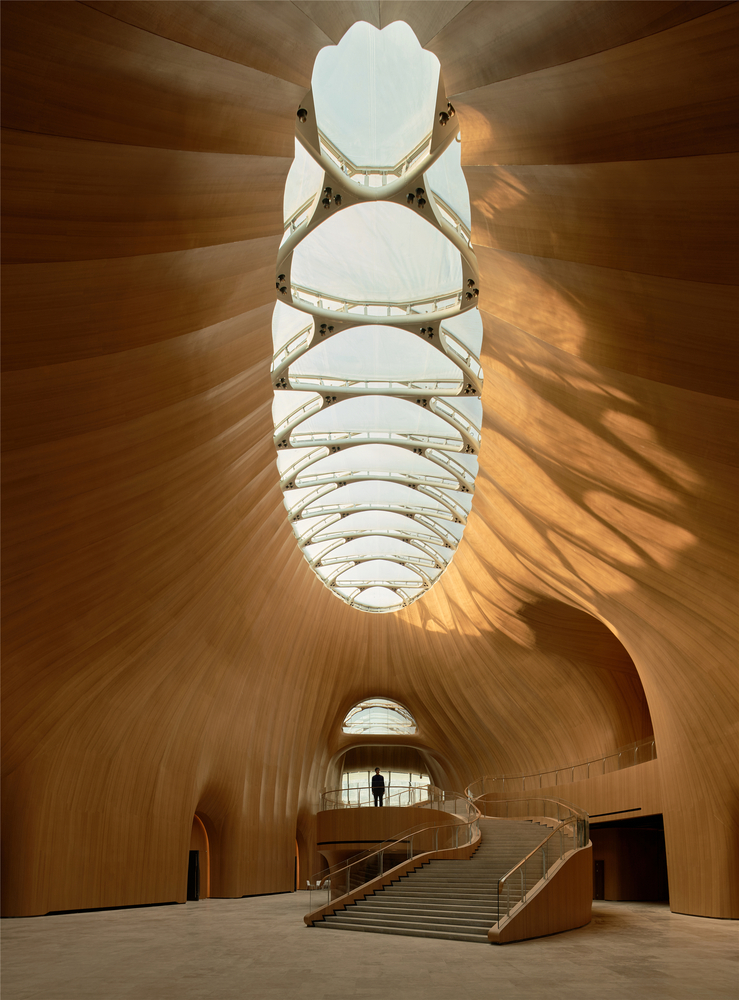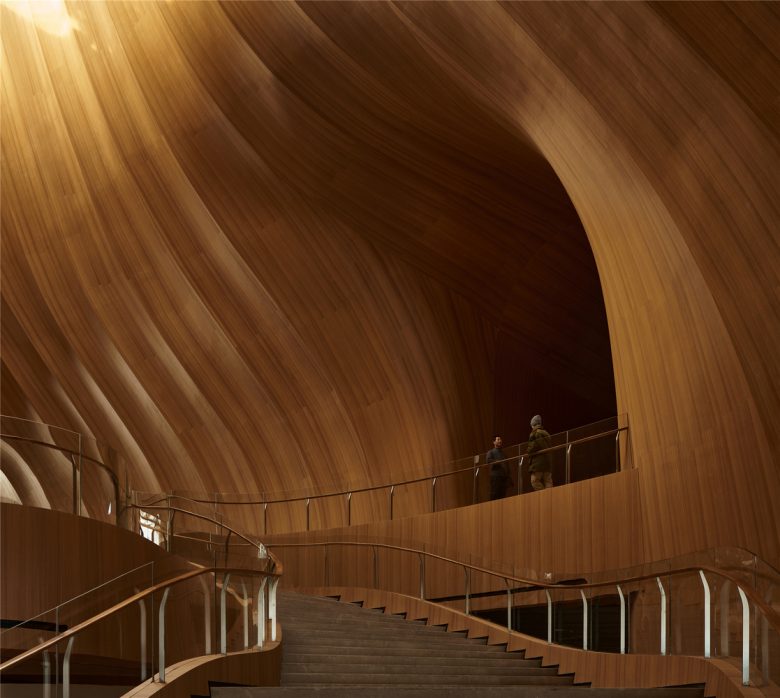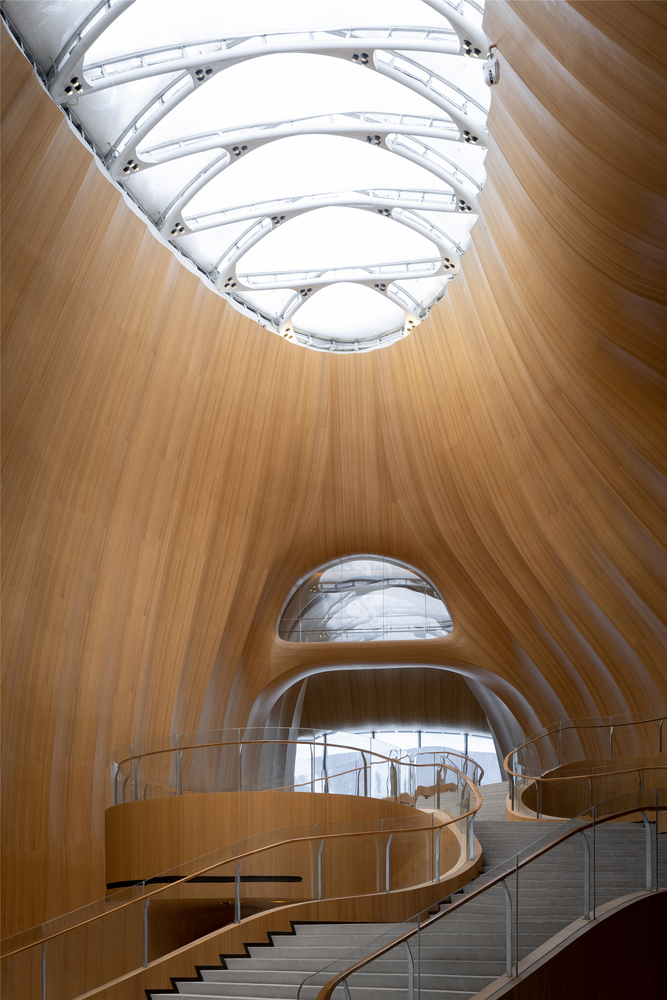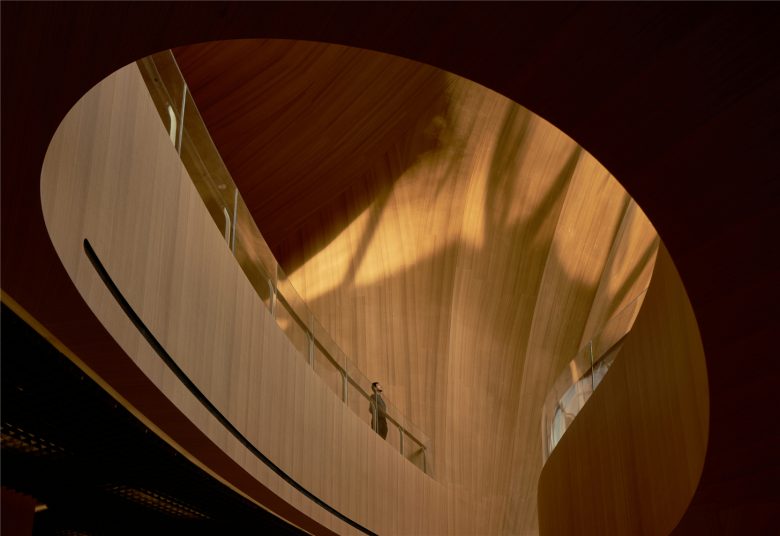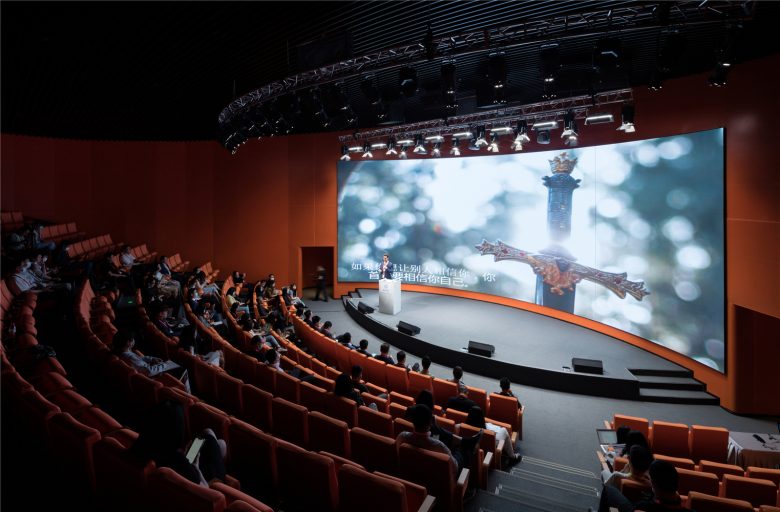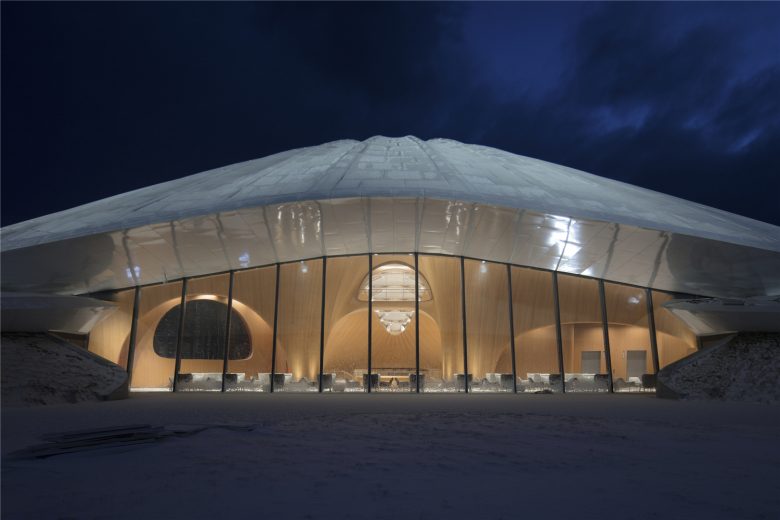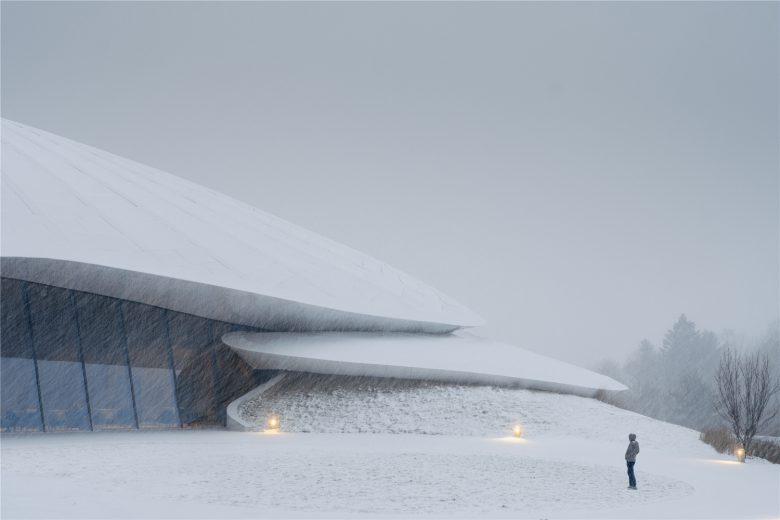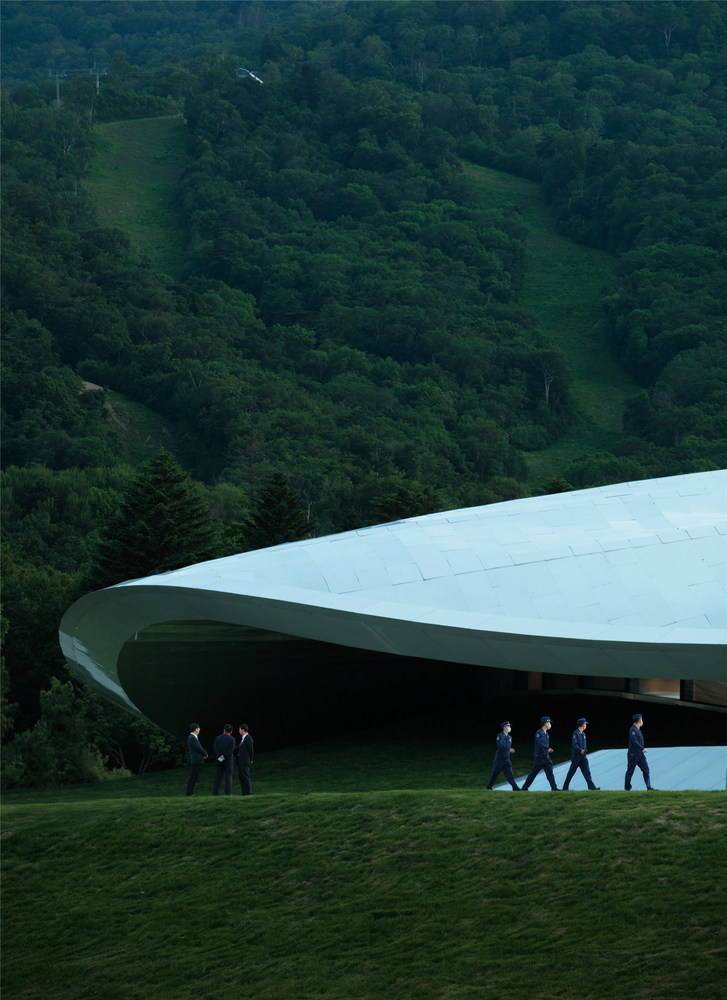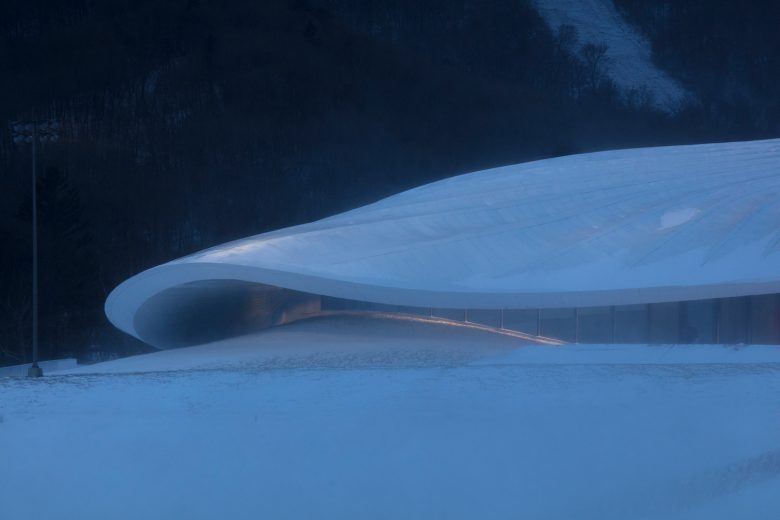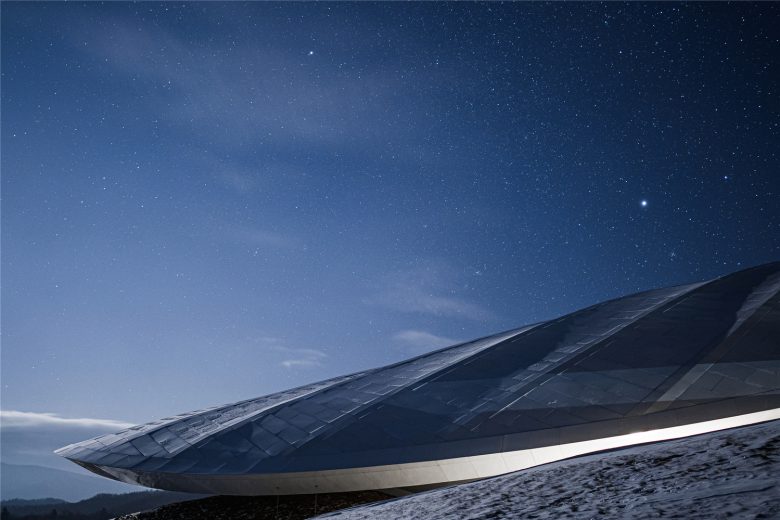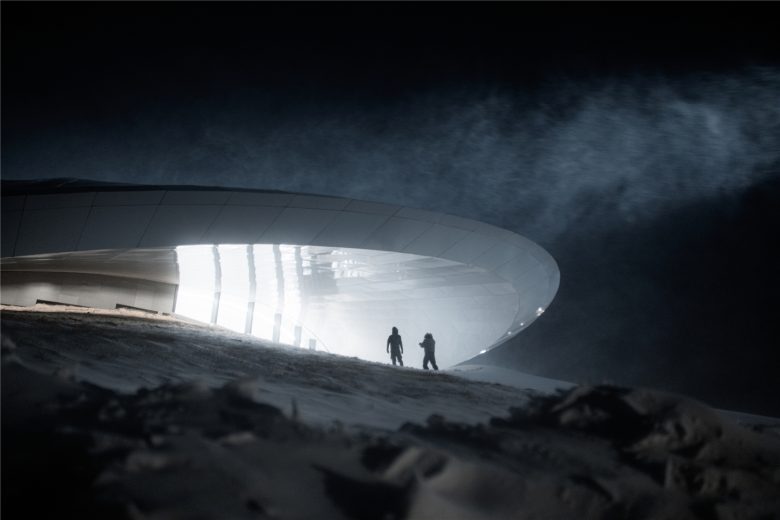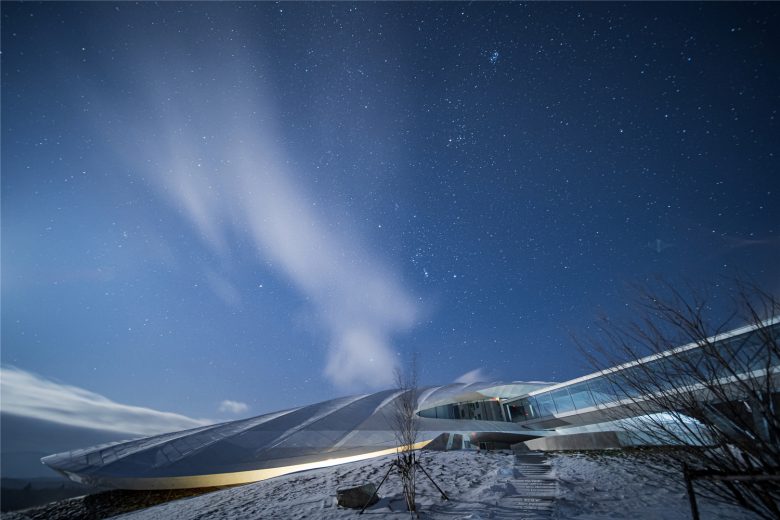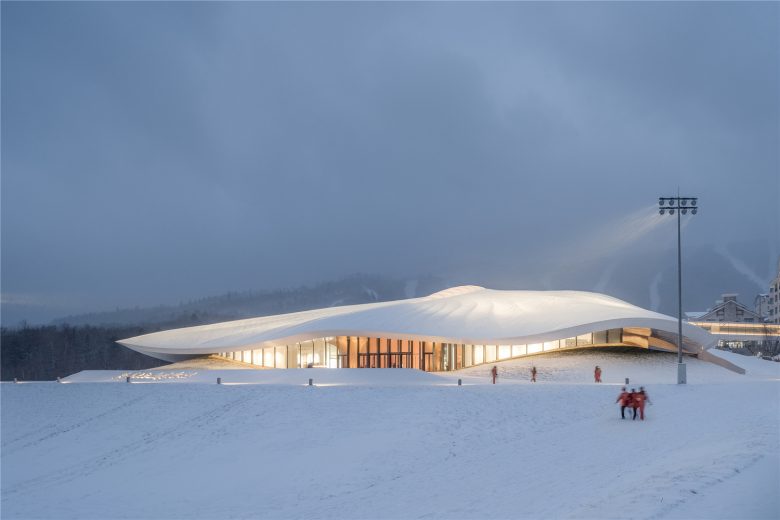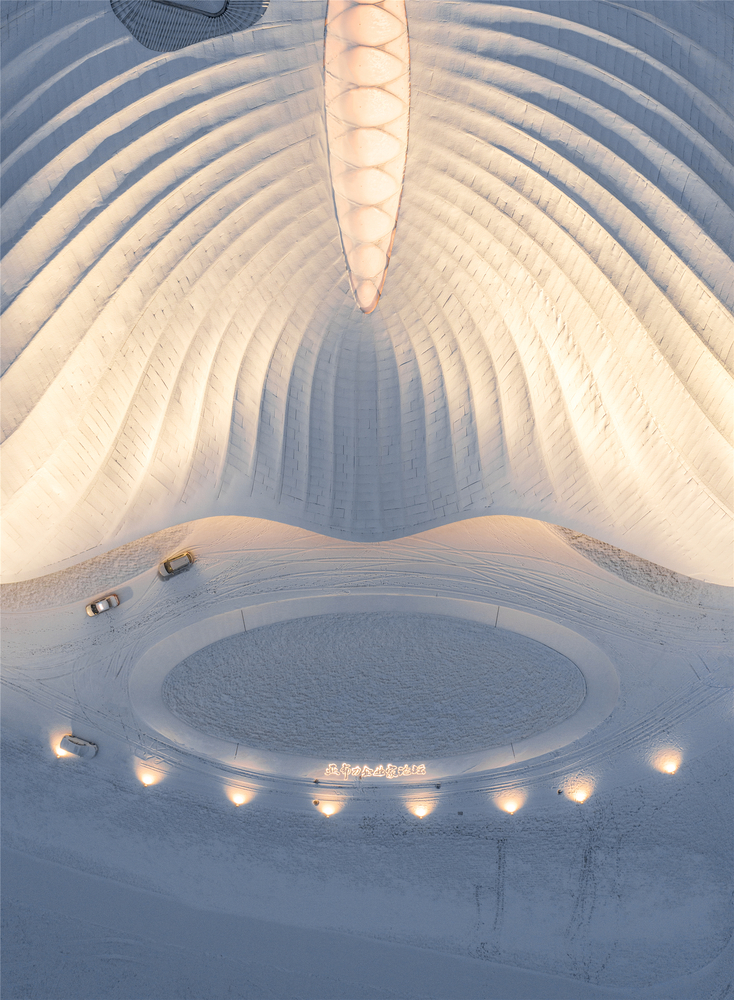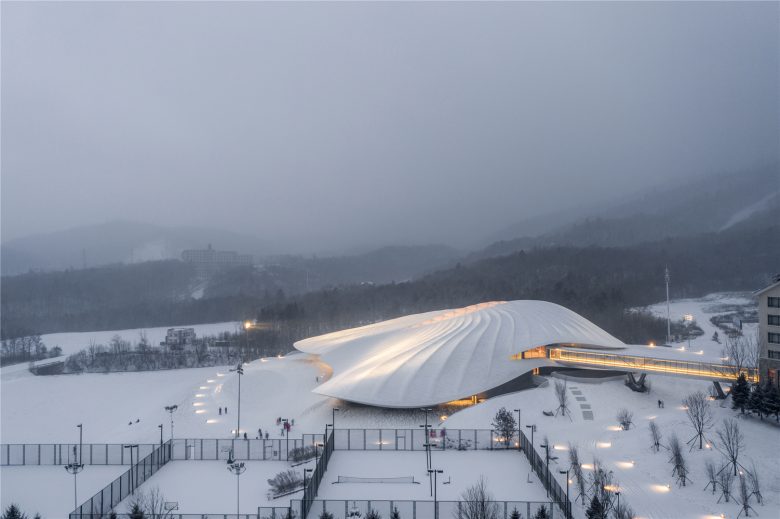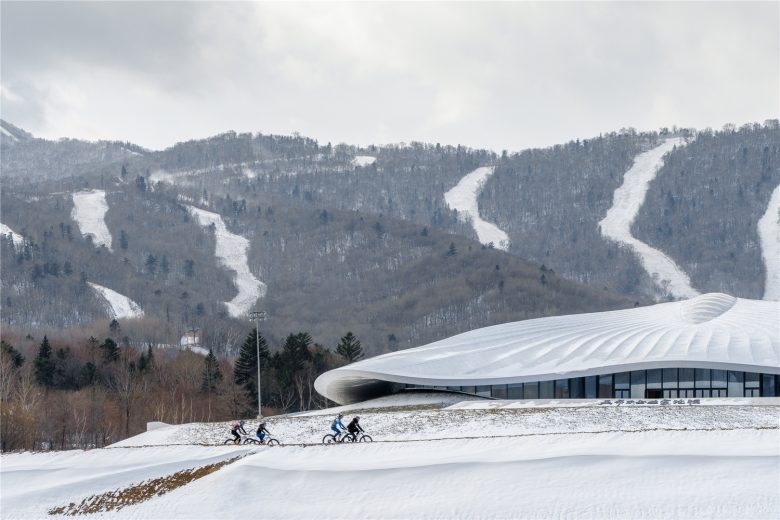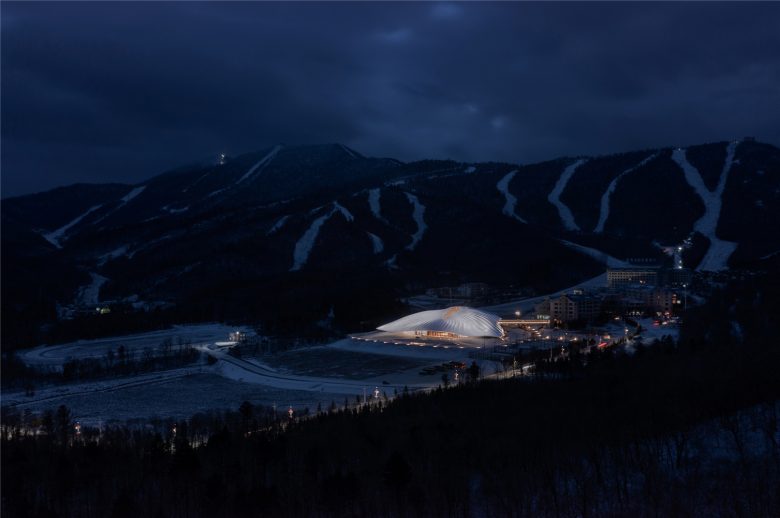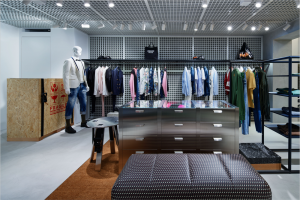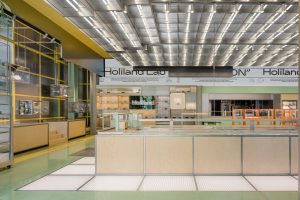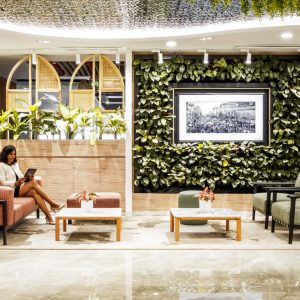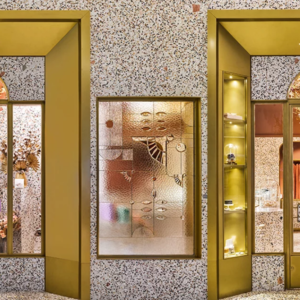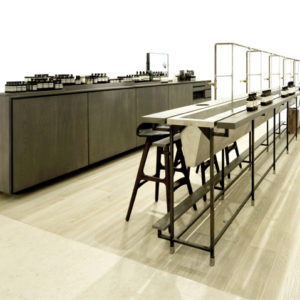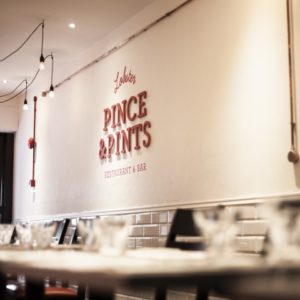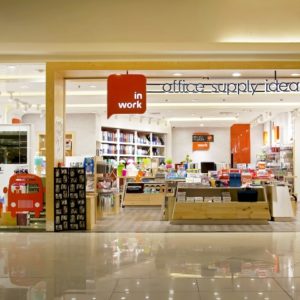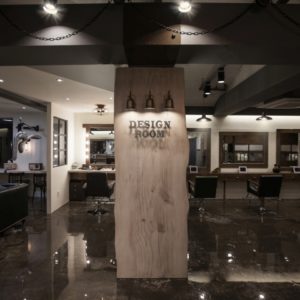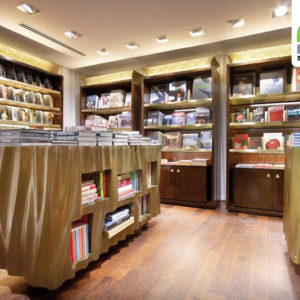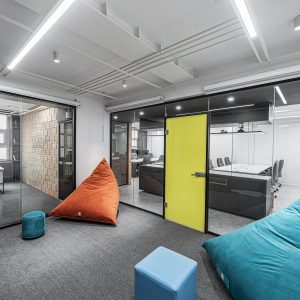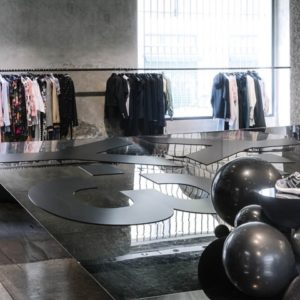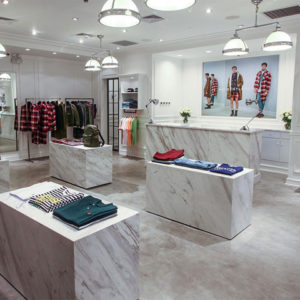
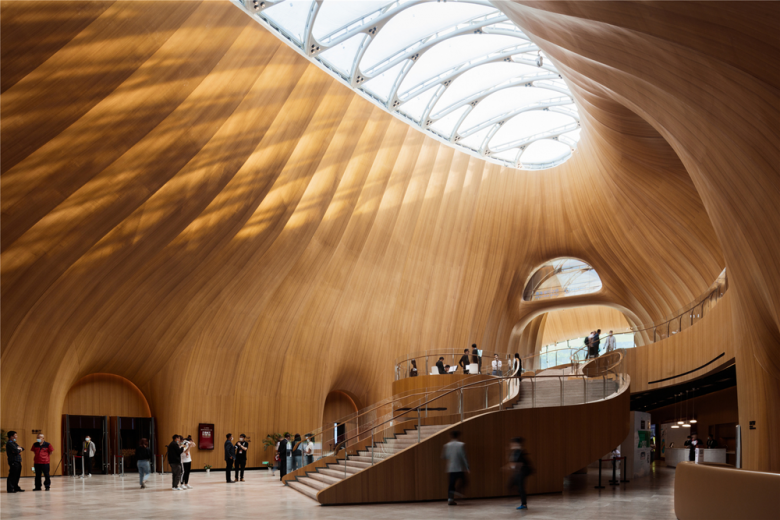
The project is located in the city of Yabuli, Heilongjiang Province, a well-known ski town, which has the largest snow training center in China, and the longest alpine ski slope in Asia. On a site of 22,000 square meters with a total interior area of 16,000 square meters, the building consists of a library, exhibition halls, and more than 20 well-equipped multi-functional rooms. This new permanent site is designated to host the annual event of the China Entrepreneurs Forum (CEF) as well as the Chinese Entrepreneurs Museum. The center also hosts educational programs for entrepreneurs and corporations, which can accommodate big conferences, exhibitions, corporate training programs, and think tanks simultaneously.
MAD Architects designed the congress center to blend into the surrounding scenery and topography. From a distance, it looks like a giant white tent, floating down from the top of the mountain and then gently dissipating into the snow. The undulating ridgelines of the roof structure are inspired by the shape of distant snow-capped mountains while the organic and biological texture of the white aluminum panels recalls the contours of fresh snow.
The interior layout and circulation work with the building’s height differences that follow the downward slope of the hill, leaving the building hidden underground. The main entrance is on the ground floor by the east side but the side entrance and exit are located on the second floor by the west side. While walking uphill in the snow, people see this structure as a humble gesture with open arms. The farthest ends of the curved roof cantilever up to 20 meters to provide shelter for passersby from inclement weather.
The floor-to-ceiling glass curtain walls frame both the east and west sides of the building, while the north and south facades blend into the sunken courtyard landscape. All MEP terminals are designed to be not visible while the louvered openings are set in the sunken garden underground, allowing for a smooth visual continuity between the curve on the façade and the interior walls.
Sunlight from the central skylight floods the wood-clad lobby, which maintains a commanding presence within the central axis of the center. Additional light features are embedded throughout the structure to illuminate the dynamic activity taking place inside while ETFE, a lightweight and translucent plastic polymer, is integrated into the curtain wall structure to diffuse light throughout the interior. The lobby can function as a temporary performance space thanks to an acoustic design using wood panels with .4mm micro-perforations.
The main conference hall is an entirely column-free space that can accommodate nearly 1,000 people. The LED screen of the 350-seat auditorium can be opened to transform the surrounding mountains into a backdrop.
In addition to creating a dramatic and transparent space, the floor-to-ceiling glass merges the interior and exterior views of the pure snow scenery and the warm wooden interior into a singular composition. During the day, the architecture is a form of land art on the snow-covered earth; at night, the warm lighting illuminates the structure like a burning bonfire by a tent.
Above the snowy mountains of Yabuli, there is the most beautiful starry sky; a luminous deep blue that extends infinitely into the universe. The bonfire and the tent served as design inspiration as these two elements reflect the human spirit of exploring the greater unknown, seeking truth and knowledge in the dark. The Yabuli Entrepreneurs’ Congress Center is the physical site for the heritage of that spirit which guides the way for the successors.
Architects: MAD Architects
Design Team : Guangchong Li, Shouquan Sun, Wei, Deng, Chi Song, Xiaomei Zhang, Wei Huai, Meng Zhao, Shuobin Wang, Yanru Zhang, Yuki Ishigami, Ying Xiao,
Photographs :Blackstaion, CreatAR Images, Arch-Exist, Agovision
